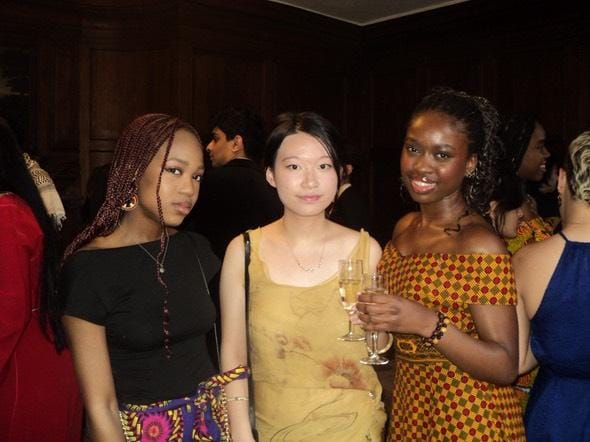Sometimes it takes a new word to express an old feeling. Until the age of around fourteen I spent many of my evenings brokering complex agreements with a God I thought I believed in: “If I get full marks in that test tomorrow, I’ll pray to you every day from now on.” I never really meant any of these promises – my fingers remained metaphorically crossed behind my back – but God was a willing dupe and, much of the time, I seemed to get what I wanted. And so it continued for several years. One fateful day, bored and with little better to do, I came across a video of the celebrated New Atheist, Christopher Hitchens, lambasting some poor, tongue-tied Christian or other about the non-existence of God. I was converted – not by the quality of the arguments, nor by Hitchens’ rhetorical flair, but by the sudden realisation that atheism, a lack of belief in God, was even on the table. I didn’t feel I had gained anything new; I felt that an old, deep feeling had finally been given a voice.
The most recent comparable addition to my vocabulary has come from the brilliantly addictive bibliography of Milan Kundera, the Franco-Czech novelist most famous for The Unbearable Lightness of Being. Despite his persecution at the hands of the Communist Party of Czechoslovakia, Kundera’s novels remain surprisingly apolitical. Their world is one of relativity and uncertainty. As he put it himself in The Art of the Novel, ‘every novel says to the reader: “Things are not as simple as you think.”’ His works are not passive, however. Tendencies which would undermine the nuances and ambiguities of the novel are frequently criticised. In earlier works, like The Joke and Laughable Loves, this is the totalitarian impulse, and its accompanying need for absolute moral clarity. Later, in Immortality and Slowness, it is the modern world’s breakneck speed, the desire for convenience rather than complexity, which is named and analysed. Professor Avenarius, a character in Immortality, calls it ‘Diabolum’.
‘Diabolum’ describes anything which demonstrates our need for speed, like the cars whose wheels Avenarius slashes in night-time escapades, but also refers to the abolition of anything which might make us feel, even for a moment, like we are wasting our time. In Immortality, which was written prior to the invention of the smartphone and the widespread adoption of the internet, this is the substitution of silence with perpetual noise, the replacement of in-depth radio with jingle-ridden nonsense and the oversimplification of complex ideas to reductive images. But it has only become more omnipresent as time has gone on – myriad examples no doubt come to mind. Indeed, Avenarius believes that, as a political force, it is unstoppable. Kundera’s novels, which show us the beauty to be found in life’s shades of grey, show us also what we stand to lose in the rush to cram as many things as possible into every moment: life itself.
Slowness, Kundera’s first novel in French, picks up the gauntlet thrown down by Immortality. The opening, in which a frustrated driver races to his destination, immediately evokes Avenarius and the question of ‘Diabolum’. How can we resist it? At the end of the novel, Kundera compares the homebound journeys of two unsuccessful lovers: an 18th century chevalier and a young 20th century man, Vincent. The Chevalier will return to Paris by the slow trot of a carriage; Vincent will hurtle back on his motorbike. The Chevalier will savour his memories of the night; Vincent already has his mind set on the future. The pace of his journey represents the speed of his forgetting. For Vincent, this is precisely the point: he wants to outstrip his memory. But, by rushing forward, he will not feel, process, learn or grow; he will only forget. In the Chevalier, on the other hand, there is ‘a sign of happiness’. He is not clinging onto the past, but life itself.
In our desire to do and achieve everything, we often forget that slowness too is a virtue. Kundera does not give us a political solution to ‘Diabolum’, the invisible hypnotist distracting us from life itself – perhaps Avenarius is right and none exists, or perhaps the problem is simply not of interest to Kundera. He does, however, provide us with a personal one: slowing down. Stylistically, the end of Slowness mirrors the end of Camus’ Myth of Sisyphus. Both end with a haunting, almost ethereal, image, which sticks with us, reminding us to truly live and feel, rather than run away. Only by stopping to think can we find ourselves, and the ‘capacity to be happy, [on which] hangs our only hope.’ It is not true that the tortoise always beats the hare. But the hare who does not stop, every so often, to notice his surroundings will one day realise he was running on a treadmill all along.










